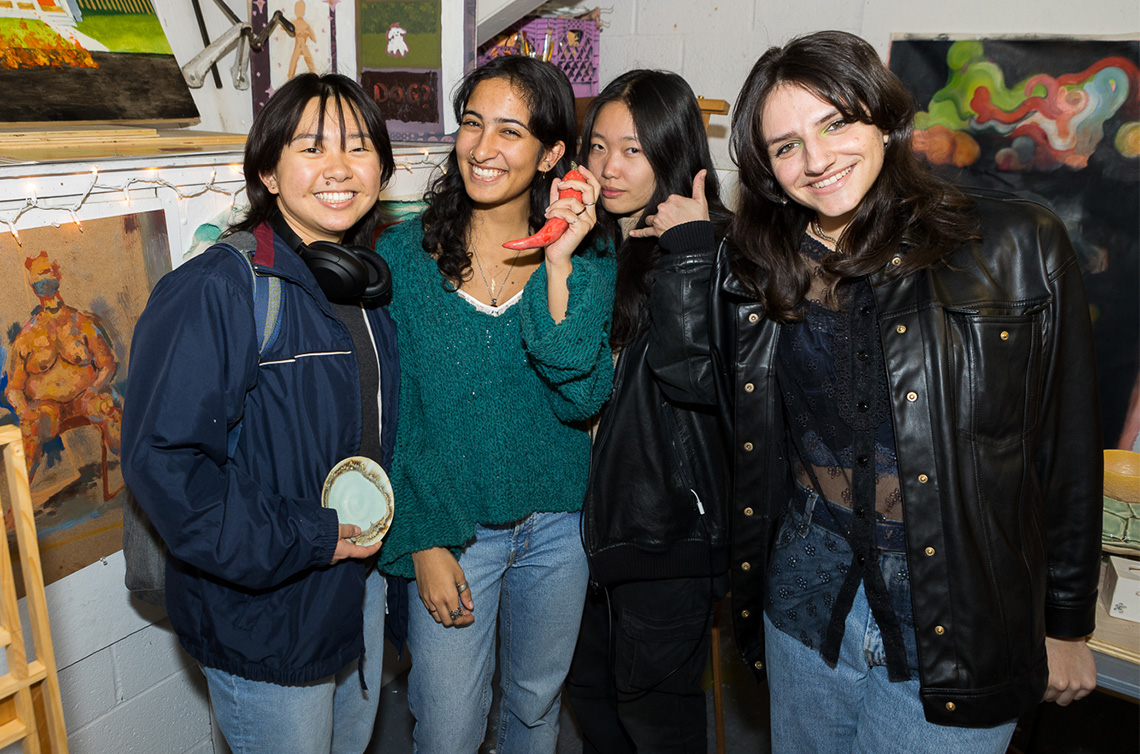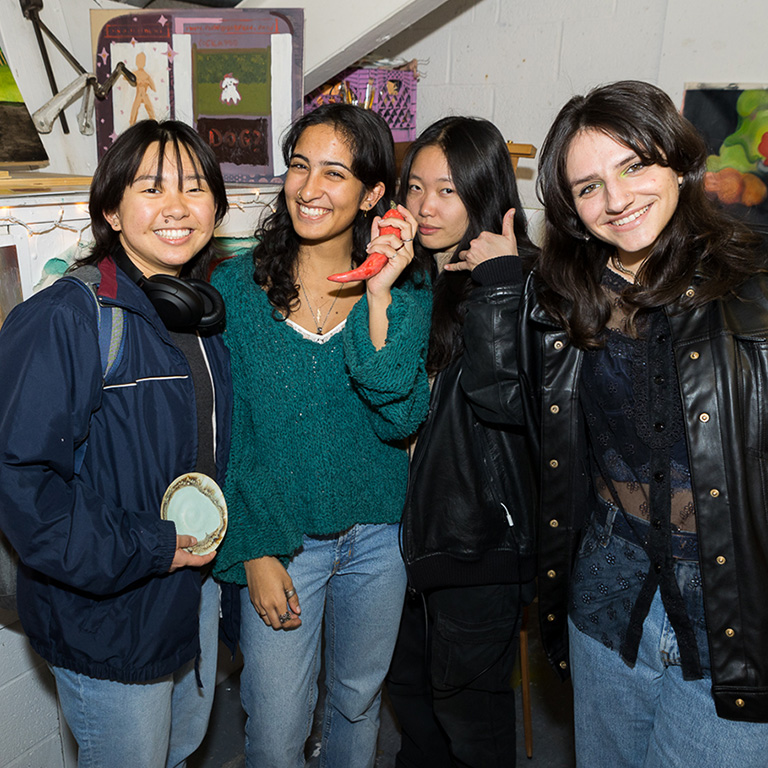Fall 2021 Elective Courses
Please find below a list of all advanced art electives with abbreviated descriptions for Spring 2022. For complete course descriptions and additional information please refer to SIO.
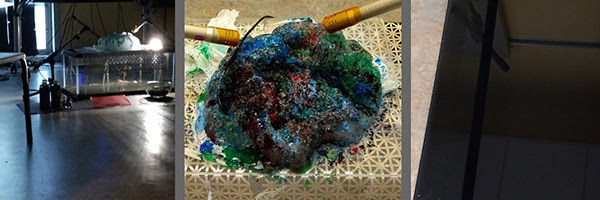
Experimental Sound Synthesis — 60407
TR 2:30-4:20 pm
Professor Annie Hui-Hsin Hsieh
This is a course that will guide students into the world of experimental approaches to music and sound production, with particular emphasis in some of the key practices and concepts developed in the 20th and 21st centuries. We will examine a variety of ways in which sound works are made and perceived, understanding the historical perspectives and critical viewpoints of each approach through the application of hands-on practicum. The topics covered in the course are divided into three large areas: the art of sound, the use of technology in the production of sound works, and the creation of interdisciplinary sound installation.
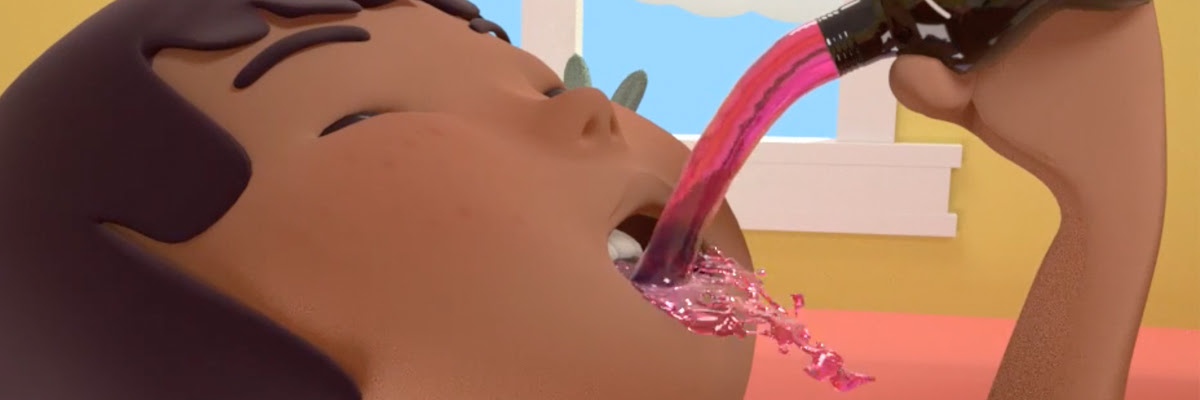
MW 1:25-4:15 pm Professors James Duesing and Jessica Hodgins
Animation, Art, and Technology is an interdisciplinary course cross-listed between Art and Computer Science. Faculty and teaching assistants from computer science and art teach the class as a team. It is a project-based course in which four to five interdisciplinary teams of students produce animations. Most of the animations have a substantive technical component and the students are challenged to consider innovation with content to be equal with the technical. The class includes basic tutorials for work in Maya and Unity leading toward more advanced applications and extensions of the software such as motion capture and algorithms for animating cloth, hair, particles, and immersive technologies.
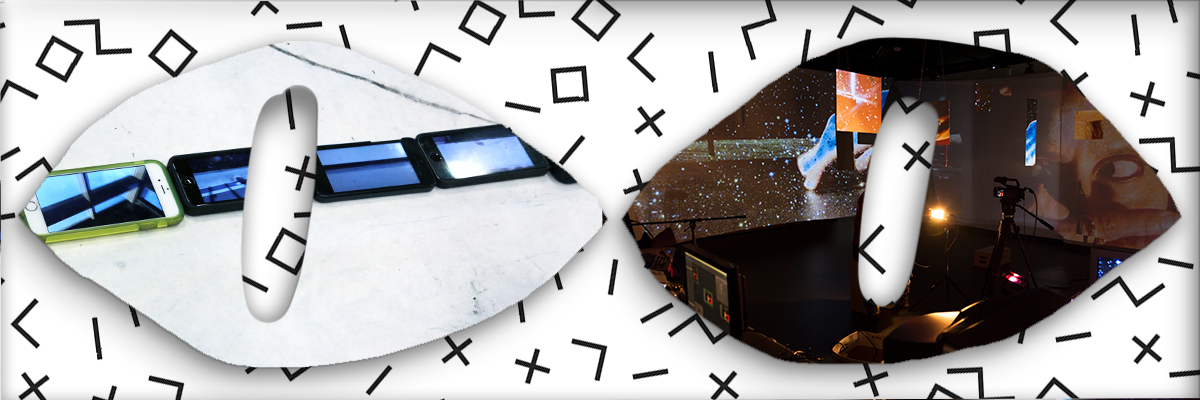
TR 7:00-9:50 pm
Professor Johannes DeYoung
Animation is too often considered through the narrow lenses of mass media entertainment. Taken apart from such attenuating idioms, the expanded field of animation explores a rich continuum of innovation and philosophical inquiry that predates cinematic storytelling and continues through the hybridic topologies of post-media aesthetics. This course explores expansive new frontiers for making and experiencing animation at the intersections of art, technology, and performance. Studio work emphasizes process over medium-specificity, facilitating new methods and expanding existing techniques for making animation across a variety of contexts, including public spaces, participatory events, and virtual environments.
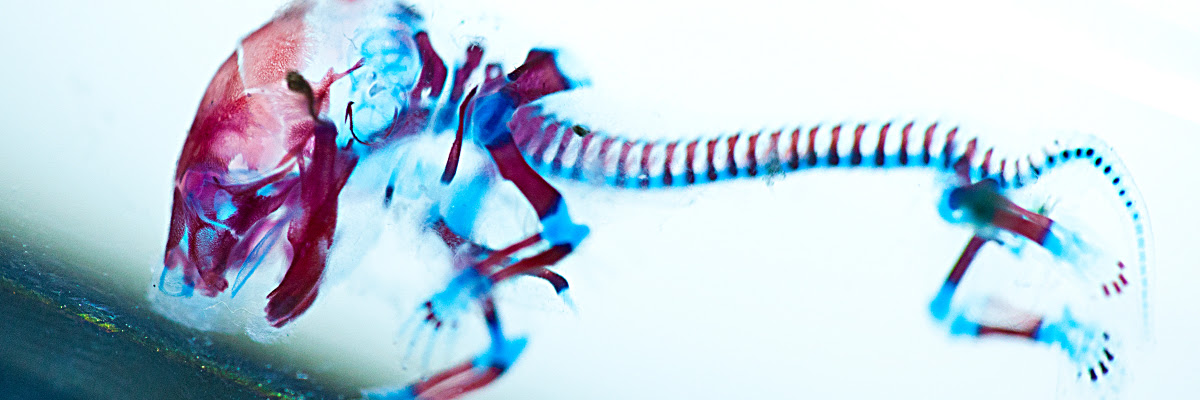
TR 8:00-10:50 am
Professor Rich Pell
This course is a deep dive into making art at the shifting edge between the living and non-living. Through critical theory and studio practice we will confront the paradoxes at the heart of what it means to work with living materials as an artist, or as an engineer. Historic and contemporary readings will compare artist, scientific, and even spiritual understandings of the living world. In the lab component of the class we will experience hands-on working with live tissue cultures, produce artworks that incorporate living or semi-living materials into their makeup, and learn new imaging techniques. The only requirement is a deep sense of curiosity and willingness to be challenged.
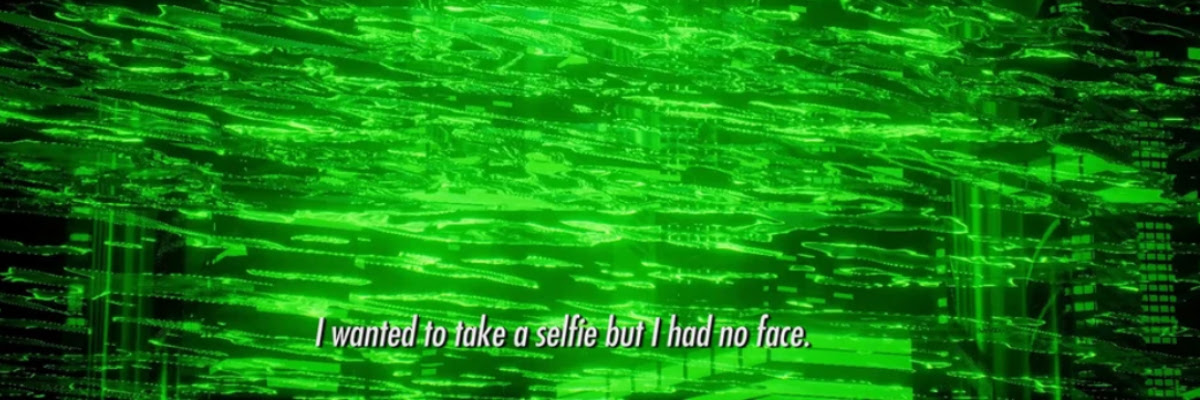
MW 8:00-10:50 am
Professor Angela Washko
Documentary Practices is an advanced ETB Studio class focused on the history, contemporary critical discourse, industry conventions, and artistic practices that span the field(s) of documentary. The course will explore how documentary storytelling has evolved over time throughout a variety of material approaches – including film, photography, writing, interactive media, and hybrid forms. Throughout the course students will produce video essays, photographic work, text-based projects, and a documentary short. During the final project for the course, students will plan, shoot, and edit a short documentary film, learning tools for planning, production, post-production, and distribution of documentary film in workshops and in-class demonstrations.
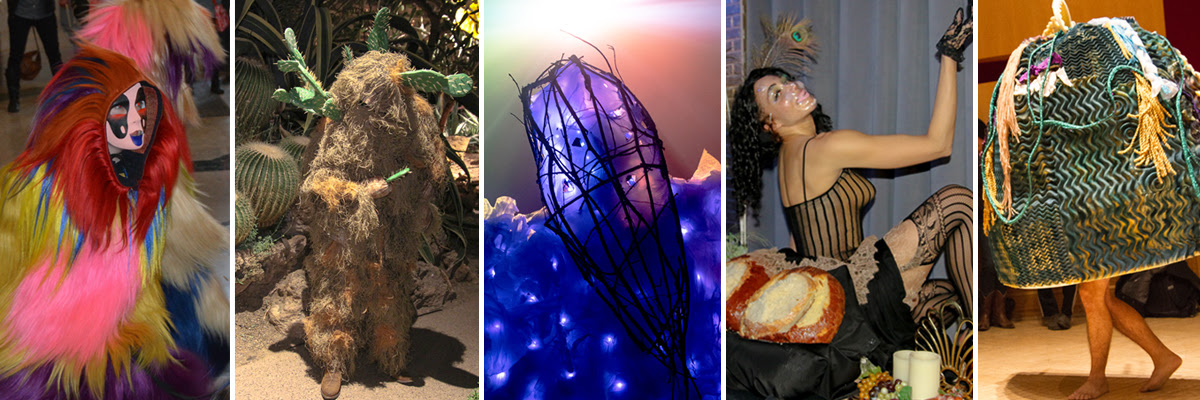
F 11:15 am-12:35 pm & 1:25-4:15 pm
Professor Scott Andrew
This interdisciplinary studio course presents a hybrid of relationships between wearable sculpture and prosthetics, movement and identity-based performance for video, social media, experimental fashion and live performance. The course emphasizes hands-on experience, the development of visual skills, craftsmanship, conceptual development, and performance techniques. Students will design and fabricate performative devices that alter, augment, mask, and transform the body and its inherent abilities. The course culminates in a series of live performance events in collaboration with the School of Music’s Exploded Ensemble and other guest artists (TBD).
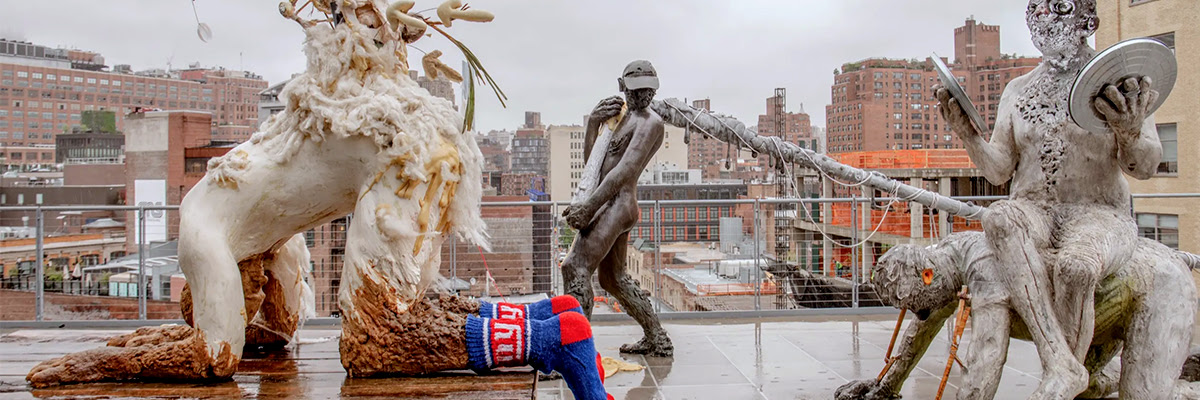
MW 1:25 – 4:15 pm
Professor Isla Hansen
Open Sculpture is a project-based studio, building off skills and concepts learned in 3D media 1 and 2, that allows for student-driven development of an artistic practice in 3D media, installation, and systems. Ours is a widely inclusive and experimental definition of “sculpture,” encouraging interdisciplinary approaches. Artists will create 2 to 3 major projects and hone their individual sense of creative identity through the development of personal research interests, aesthetic sensibilities, and their own critical language surrounding common themes through their projects. An emphasis will be placed on extremely contemporary art, as we develop our own class database of sculptors, fabricators, and artists who are our peers.
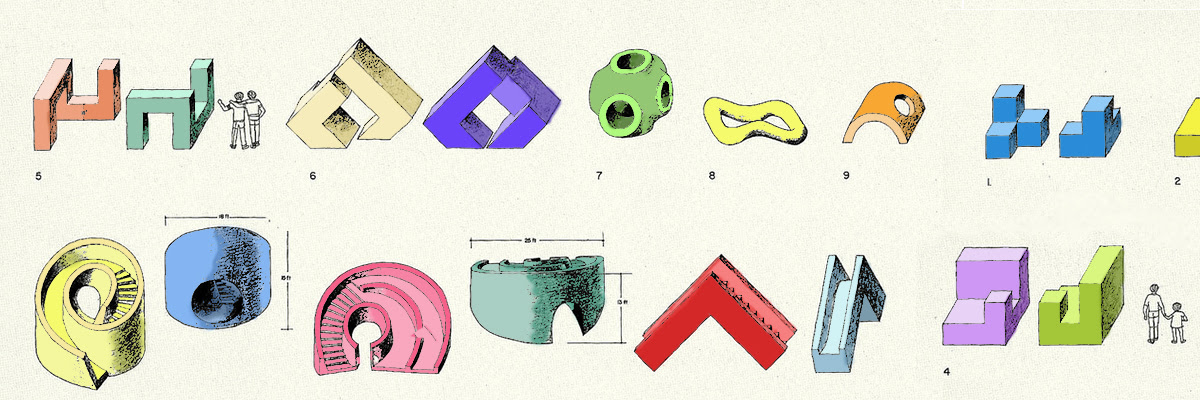
MW 8:00 – 10:50 am
Professor Isla Hansen
Objects of Play is a project-based studio course that explores the concepts, fabrication techniques, and history behind the creation of play objects. This course explores play as a lens and mechanism for seeing, thinking, and engaging across cultural borderlines. Students will learn about, discuss, and research cultures of play as revealed through a range of physical examples, such as toys, play spaces, playgrounds, games, and the people who both make and play them. The course will cover methods in the fabrication of play objects, including the use of digital and physical fabrication tools such as those in our wood shop, sewing and soft sculpture labs, and use of 3D printers, laser cutters, and our CNC router in conjunction with 3D CAD modeling.
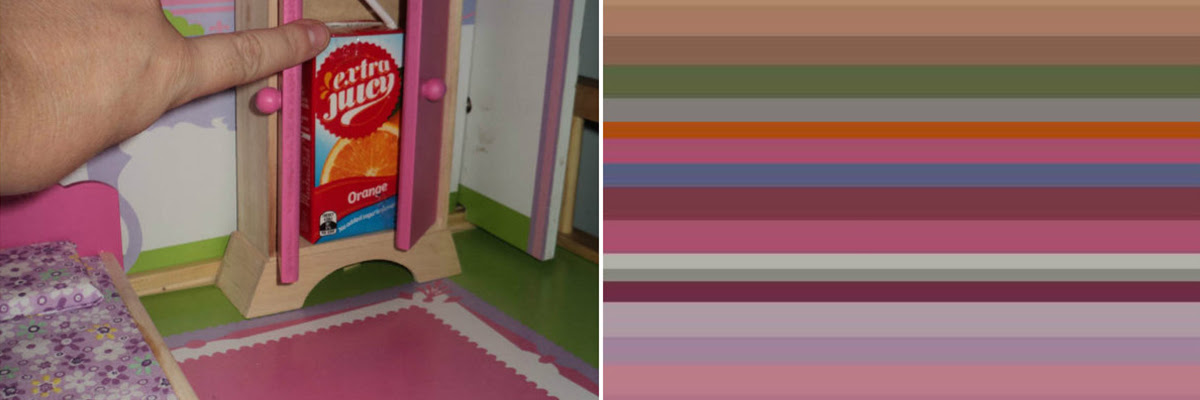
MW 7:00-9:50 pm
Professor Clayton Merrell
In this advanced course, students will learn to employ a wide range of color theories and color systems through hands-on exercises and studies. Studies will be done primarily in paint, with some use of collage and digital media. These exercises will be aimed at mastering a variety of color approaches that will be applicable to each student’s own artistic practice. Students will develop, based on their own interests, a cohesive body of work in which to practice and expand on the skills learned through the directed exercises. Studio work will be augmented by lectures, demonstrations, critiques, readings and critical discussion of writings about color.
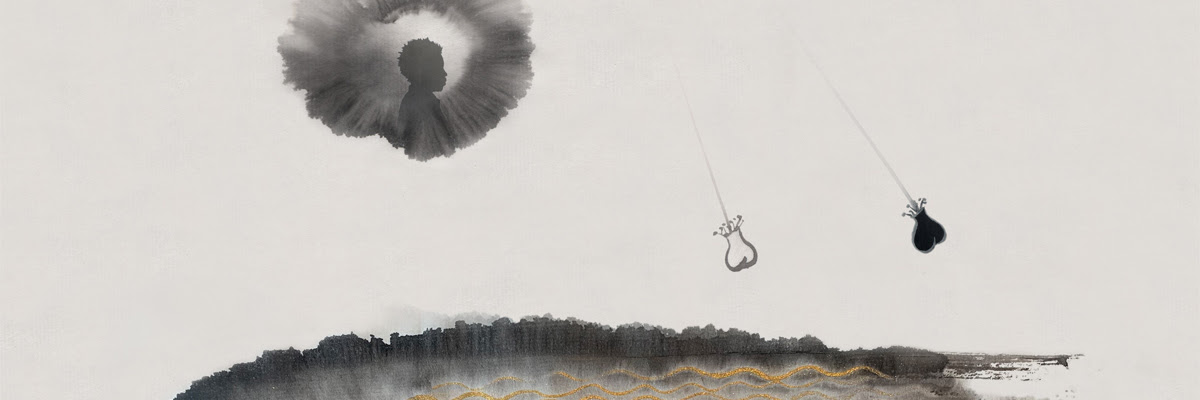
TR 1:25-4:15 pm
Professor Andrew Ellis Johnson
Hypothetically, paintings and drawings remain outside of time, embodying an indelible desire, an instant caught, a thought preserved. Their beginning, middle and end are depicted simultaneously. To the extent that we fancy our time as one with knowledge, opinion and appraisals at our finger tips, there is NO TIME more appropriate for making drawings or paintings. In this studio course we will research, examine and create works relative to three thematic units: the spontaneous (immediate, performative, transformative magic touch); the achronological (formal aspects not bounded by time); and the perpetual present (the eternal and ever extent). Students will experiment with materials and techniques, scale and size, and develop their own imagery, content and processes within drawing, painting or both.
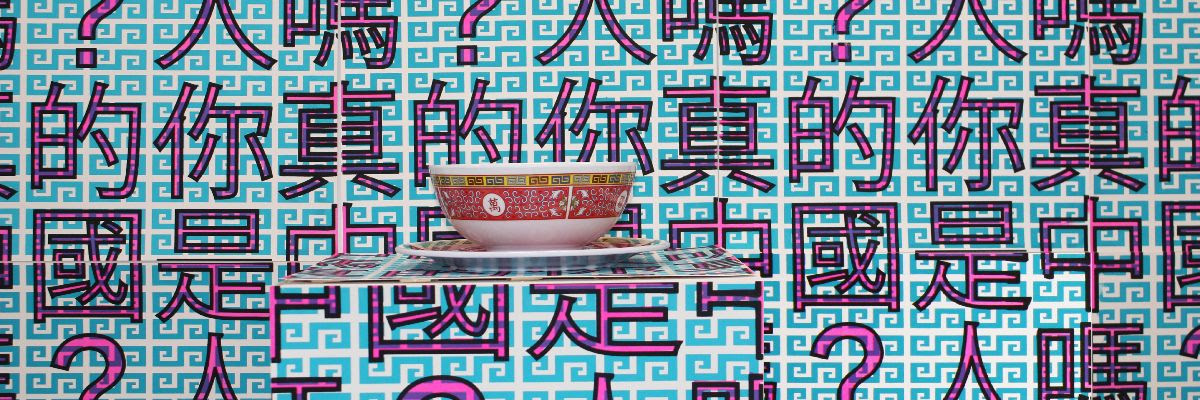
TR 8:00-10:50 am
Professor Imin Yeh
This advanced print media course is a screen-printing intensive that moves print out of editioned works on paper. Students will utilize the multiple to create immersive wall installations, participatory social sculpture, objects that act as interventions, and hand-printed yardage that can be used in soft sculpture and/or wearable forms. Students will challenge their screen-printing techniques and the scale and reach of their printed matter. Projects will concern the role of ornamental design within socio-political-cultural frameworks and the role of “hand-made” within exchange and gift economies. Projects will problematize artworks in relationship to the human body: as wearer, as laborer, and as consumer.

TR 7:00-9:50 pm
Professor Andrew Ellis Johnson
You will transform personal experiences, thoughts, and feelings into images on paper or canvas, using wet and dry media, alone or in combination. You will summon what cannot be said while crafting dreams, plumbing the depths of your psyches, acting on interior realms of intuition and confronting collective anxieties and aspirations. Insights, via lectures, readings, presentations, demonstrations, critiques, and excursions will inspire your own visions of nether worlds that can float on cross-temporal and intercultural tides. Ghosts and spirits, philosophers and poets will guide your meandering through the terrain of archetypes and aesthetics, forces and formulas.
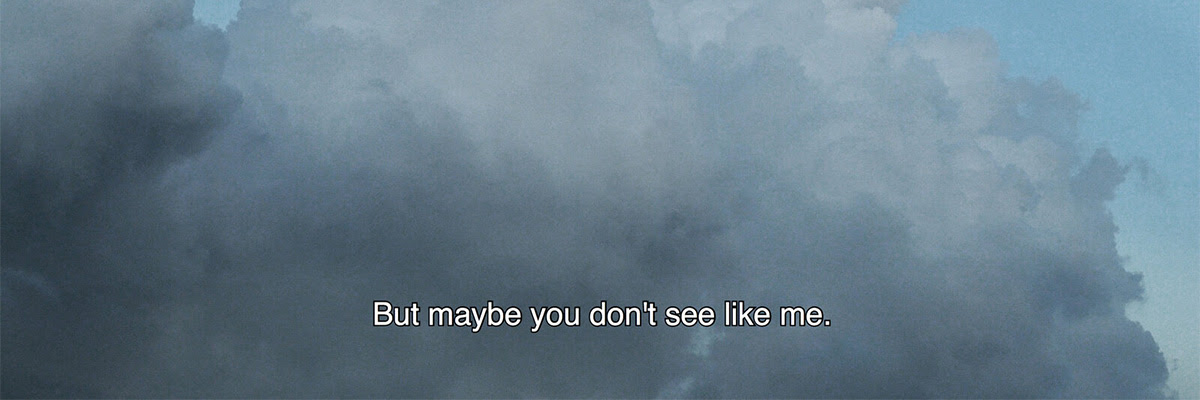
MW 1:25-4:15 pm
Professor Kim Beck
With camera in hand, students will explore, document and invent a sense of place in Pittsburgh. Informed by photographic history and landscape studies, students will develop their own portfolios of digital prints. As a CFA Interdisciplinary photography course, students will be encouraged to consider their photographs in the medium of their home department, and in some cases as a starting point for projects in other materials.
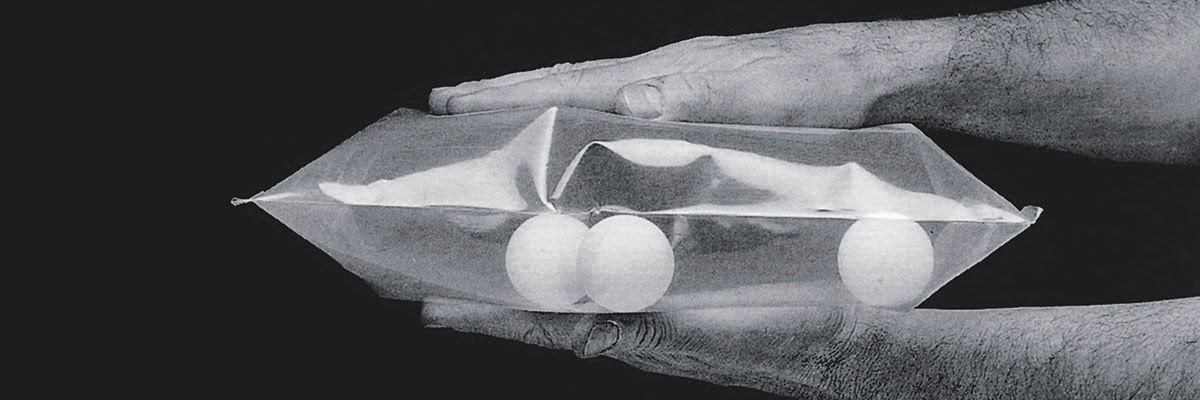
F 8:00-10:50 am & 1:25-4:15 pm
Professor Katherine Hubbard
Performance art, or the live event, has been a continuous element of art practice throughout most of the 20th century but our evolving technologies of digital recording devices have radically impacted our understanding of performance as a medium of disappearance — from within the glut of image culture it becomes crucial to re-examine our corporeal existence and the repercussions of both having a body and being represented as a body. This course will offer you the time and space to produce new work, take part in advanced critique and research current issues surrounding contemporary photography and performance. (Image: Lygia Clark’s proposition Ping-Pong, 1966. Shown in use. The objects are Ping-Pong balls and a plastic bag.)
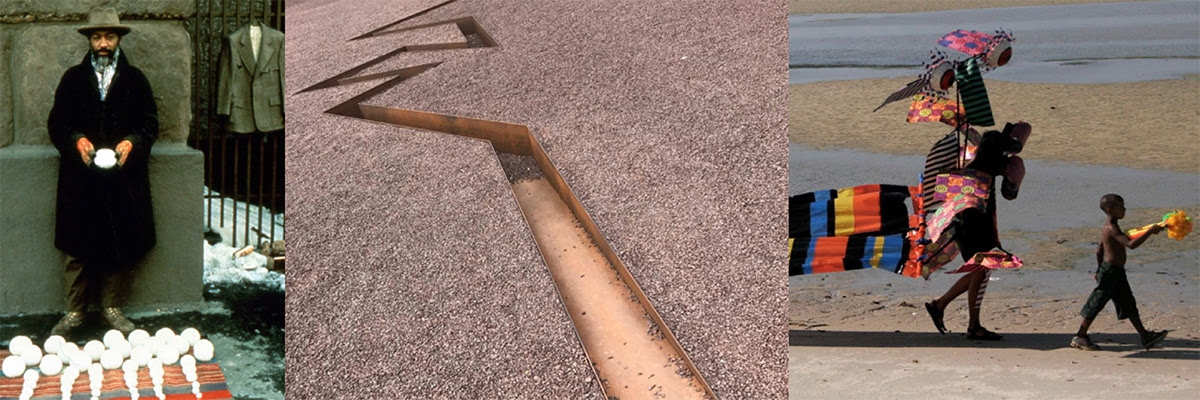
TR 8:00-10:50 am
Professor John Carson
Since the Dada movement began to erode the importance of institutional validation, artists have consciously chosen to operate outside of a studio context in a variety of ways. The eighties saw the emergence of movements and artist-run organizations intent on removing institutional barriers for art practice, enabling performance, civic engagement, social and political intervention, and myriad other approaches to feed the dialogues surrounding art and culture. Students will engage in research and reading to develop their own project(s), using the class as a space for dialog and development, and the time outside of the class as the space for execution and manifestation.
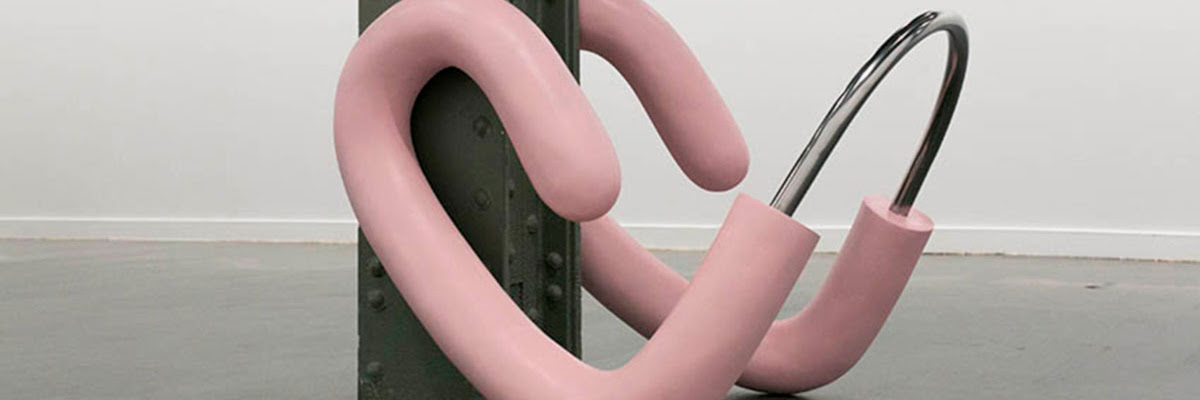
T 7:00-9:50 pm
Professor Cash (Melissa) Ragona
Is Posthumanism just another kind of humanism? Is the idea of difference at risk when thought is no longer attached to a body? What are the possibilities of imagining a queer phenomenology — or a transhumanism that challenges the limits placed on gendered, sexualized and so-called “able” bodies? How are our concepts of affect and authenticity being transformed by ideas of robotic intelligence or deepfake iterations generated by machine-learning enabled media? This seminar hopes to excavate such questions and many more produced by examining the competing and shared perspectives developed by contemporary artists and critical theorists across posthumanist, transhumanist and new materialist paradigms. (Image: SHAPER (2019) by Eva Fàbregas)
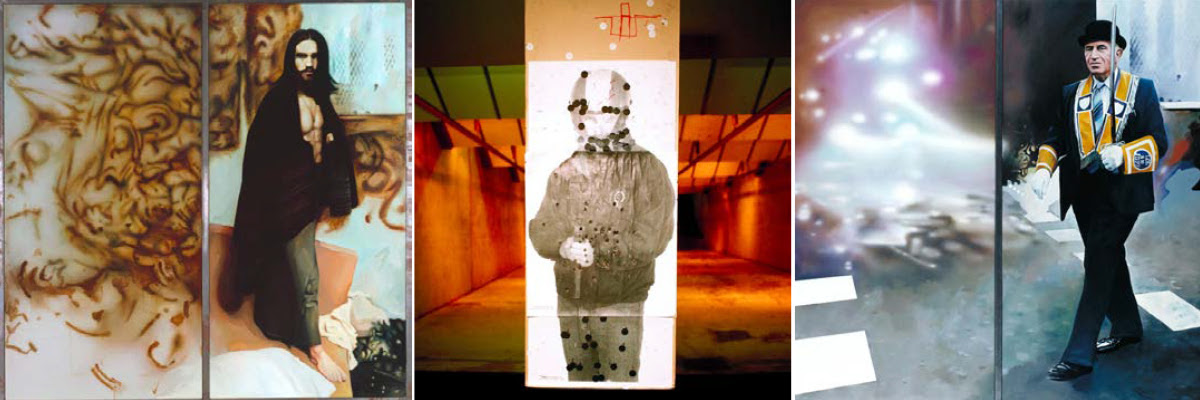
TR 11:50 am -1:10 pm
Professor John Carson
These are turbulent times we are living through, with unnerving specters of conflict in seemingly irreconcilable political ideologies and environmental threat. What role do we have as artists within this malaise. Can art become a catalyst for meaningful change? This course will consider definitions of ‘conflict’ and look at artists whose work has responded to conflict, such as war and civil strife, and all manner of disputes from territorial to domestic. We will look internationally at colonial and imperial histories, and consider national struggles from Civil Rights to Black Lives Matter. We will examine how artists have expressed solidarity, observed, or engaged with ideological differences, abuses of power, injustice and the infliction of privilege; through commentary, protest, agit-prop and activism.

TR 1:25-4:15 pm
Professors Susanne Slavick, Paolo Pedercini, and Scott Andrew
Students continue a comprehensive two-semester capstone project. Each student pursues an ambitious and cohesive body of work with guidance by a team of School of Art faculty. Multimedia, multidisciplinary, and collaborative work is encouraged. Studio work is supplemented by group critiques, workshops on writing, professional presentation skills, career preparation, and technical instruction as needed. Attendance at all 6:30pm School of Art Lecture Series events is required for this class. Open to seniors in the School of Art, or by instructor permission.
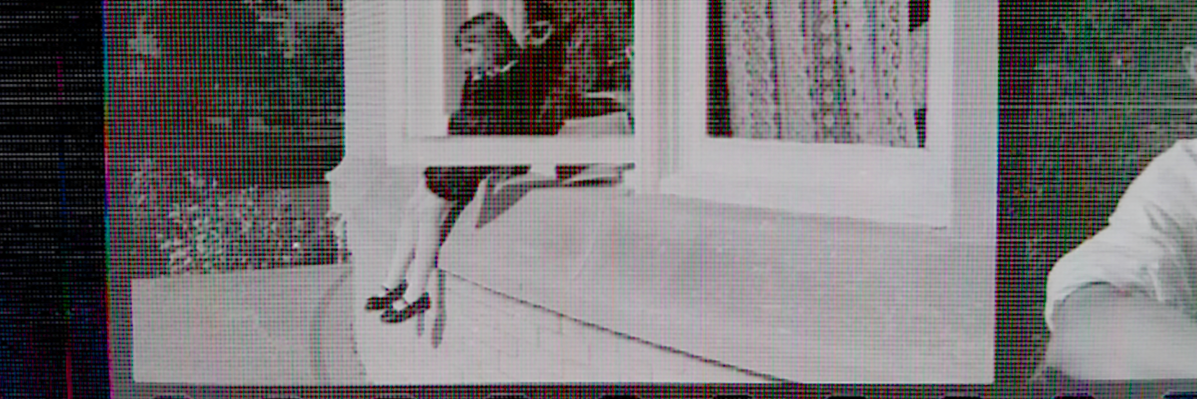
MW 7:00-9:50 pm
Professor Leo Hsu
Garry Winogrand used the term “photographic problem” to explain his practice: “I photograph to find out what something will look like photographed.” Other photographers are driven by other formal, ethical, and epistemological problems. What can photography make visible? What does it mean for a narrative to be imposed onto a subject? What responsibilities are involved in making and looking at images? This course takes an expanded view on problems in and problems of photography and asks how problems drive practice. Students will work towards identifying their own photographic problems through exercises, critiques, writing prompts, and a final photographic project. Students will interrogate their relationship with making and reading photographs, regardless of their previous experience or skill level.
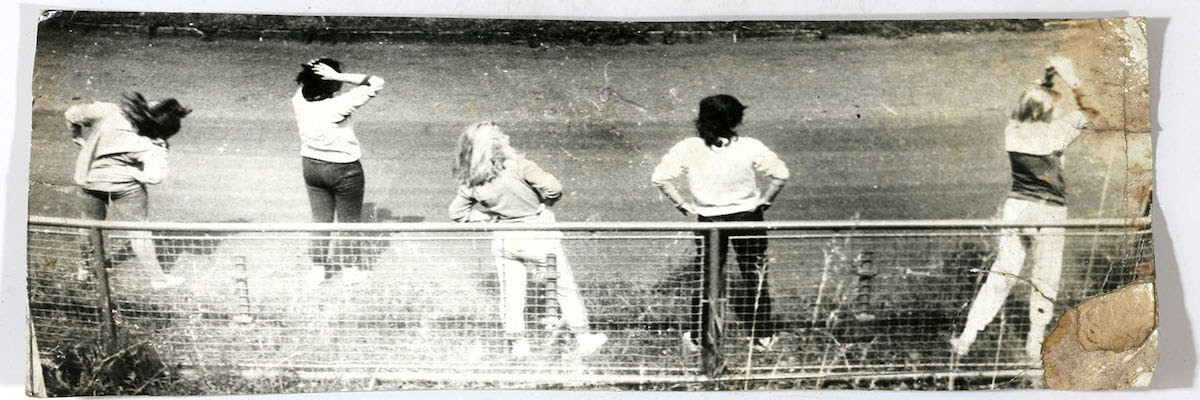
TR 1:25-4:15 pm
Professor Jamie Gruzska
This course allows you to gain experience with medium and large format film cameras while emphasizing aesthetic development and personal artistic growth. As an advanced student, you have access to an unusual assortment of panoramic and pinhole cameras that will change the way you make photographs, revealing unknown perspectives. Additional topics include digital process though negative scanning and inkjet printing, advanced monotone printing methods, and a focus on exhibition and folio presentation.
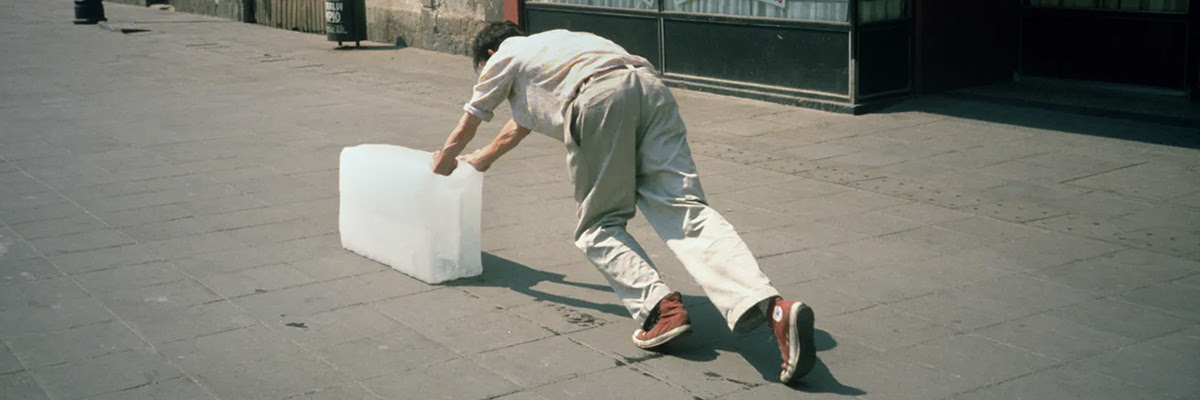
MW 8:00-10:50 am
Professor Bryan Martello
Photography and the Ephemeral is an interdisciplinary photography course designed for students of various disciplines interested in exploring the relationship between images and the ephemeral: things that last only a short moment in time. Throughout the semester students will explore different themes and ways to approach ephemeral imagery such as; still lifes, installations, performances for the camera, and the short-lived nature of images both physical and digital. Participants explore these themes through weekly presentations, discussions, assignments, and critiques.
